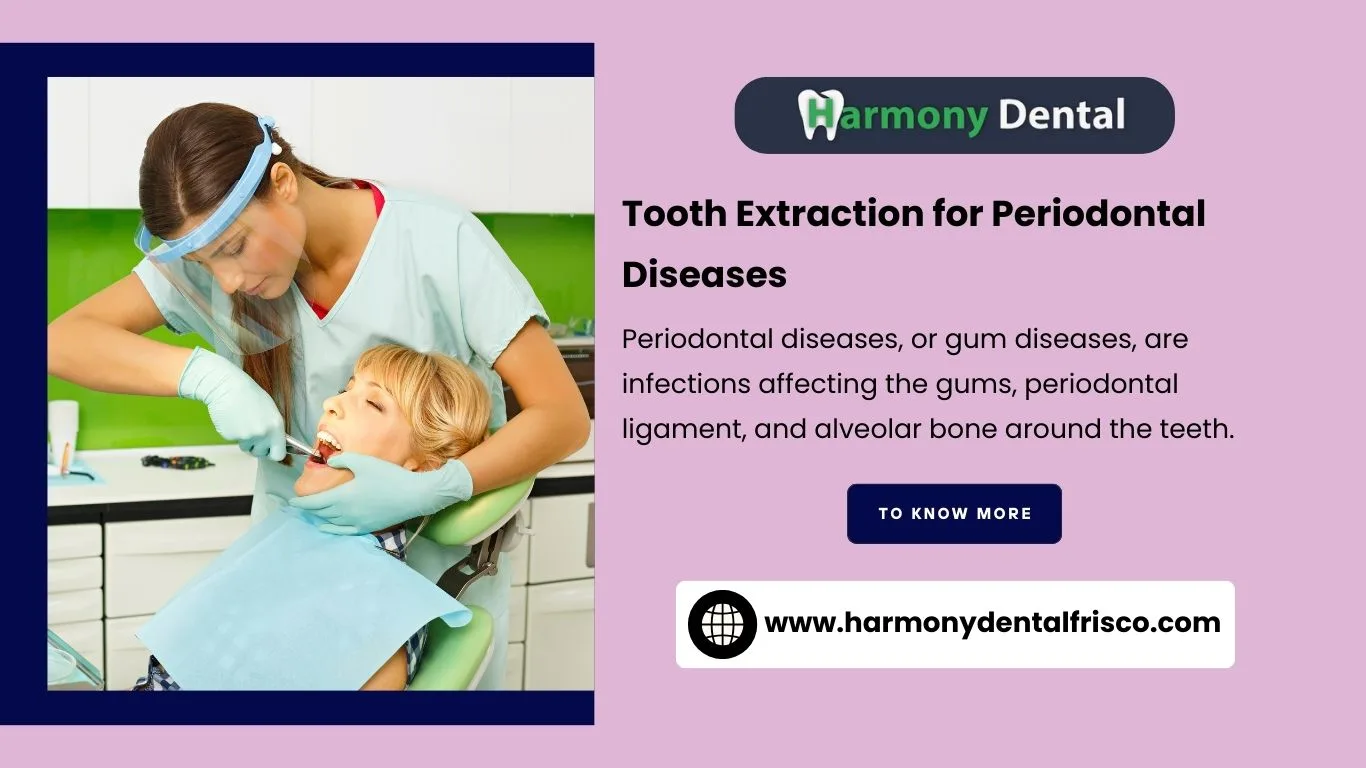Tooth Extraction for Periodontal Diseases
Understanding Periodontal Diseases
Periodontal diseases, also known as gum diseases, are infections that affect the structures around the teeth, including the gums, periodontal ligament, and alveolar bone.
The most common forms are gingivitis and periodontitis. If left untreated, these conditions can lead to severe damage, including tooth loss.
When is Tooth Extraction Necessary?
Tooth extraction becomes necessary in severe cases of periodontal disease when other treatments are no longer effective. This typically occurs when:
Extensive Bone Loss: The supporting bone around the tooth is so damaged that it cannot hold the tooth in place.
Severe Infection: Persistent infection that does not respond to antibiotics or other periodontal treatments.
Teeth Loosening: Teeth become so loose that they pose a risk of falling out on their own.
The Extraction Process
Tooth extraction for periodontal disease involves several steps:
Assessment: A thorough examination, including X-rays, to assess the extent of the damage.
Anesthesia: Local anesthesia is administered to numb the area and ensure a painless procedure.
Extraction: The dentist or oral surgeon carefully removes the tooth, ensuring minimal trauma to the surrounding tissues.
Aftercare: Post-extraction care includes instructions on managing pain, swelling, and promoting healing.
Post-Extraction Care
Proper care after extraction is crucial for a smooth recovery. Here are some tips:
Rest: Take it easy for the first 24 hours to minimize bleeding and swelling.
Ice Packs: Apply ice packs to reduce swelling.
Avoid Straws: Sucking actions can dislodge the blood clot and delay healing.
Soft Foods: Stick to soft foods and avoid chewing near the extraction site.
Oral Hygiene: Gently rinse with a saline solution and avoid brushing the extraction site initially.
Preventing Future Periodontal Issues
To avoid future periodontal problems, it’s important to maintain good oral hygiene:
Brush and Floss: Brush twice daily and floss regularly to remove plaque.
Regular Dental Checkups: Visit your dentist for regular checkups and cleanings.
Healthy Lifestyle: Avoid smoking and maintain a balanced diet to support oral health.
Tooth extraction due to periodontal disease is often a last resort when the damage is too extensive to repair. Understanding the reasons, process, and aftercare can help patients navigate this procedure with confidence. Maintaining good oral hygiene and regular dental visits are key to preventing periodontal diseases and preserving your natural teeth.
Here's to a brighter, healthier smile with Harmony Dental!
📞 Call: +1 469-906-2244
🌐 Visit Our Website: harmonydentalfrisco.com

